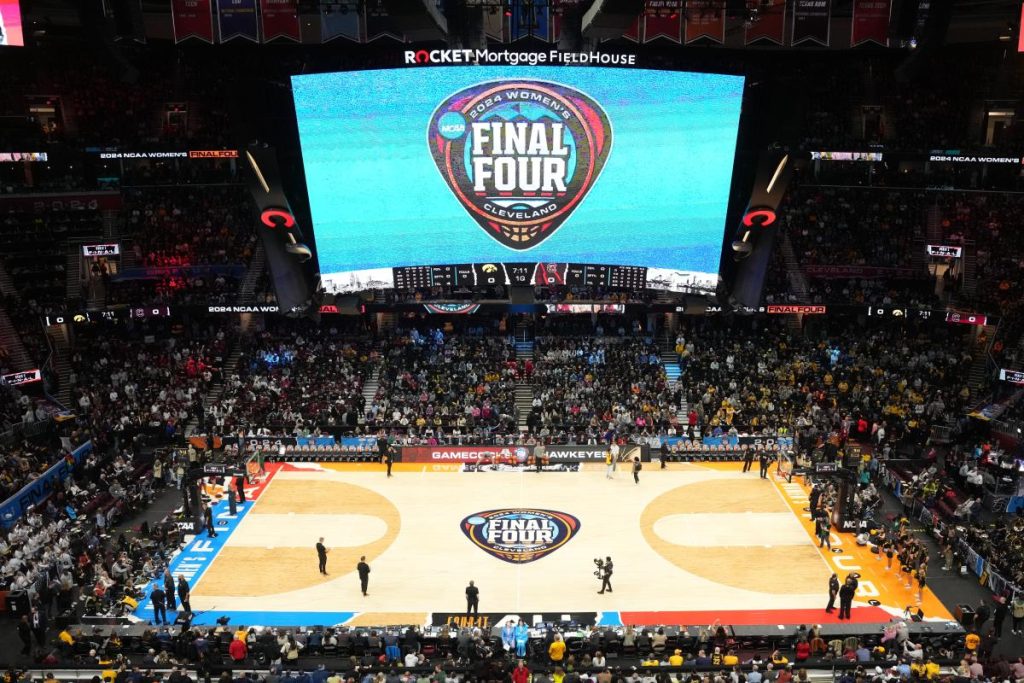NCAA President Charlie Baker attended the women’s NCAA championship game and expressed optimism about the state of women’s basketball. He believes that the increasing interest in the sport is sustainable due to the great stories and quality of competition that teams provide. Baker highlighted the exciting matchups and storylines in the tournament, such as the clash between UConn and Iowa, as reasons for the sport’s growth and potential for continued success.
Despite the tournament’s success, Baker acknowledged some issues, such as the mishaps with the 3-point line and an ejected official. He emphasized the need to address these issues and ensure that such incidents do not recur in the future. He also recognized concerns from women’s coaches and players about unequal treatment compared to the men’s side, indicating a commitment to improving the overall tournament experience and standards for women’s basketball.
Baker discussed efforts to enhance officiating in women’s basketball and expressed concerns about the treatment officials receive from fans, both in-person and on social media. He recognized the challenges faced by referees and emphasized the importance of creating a supportive environment for them to encourage more participation and development in officiating. Additionally, Baker mentioned ongoing initiatives to improve the overall support for student-athletes in Division I sports.
Regarding athlete compensation, Baker noted that discussions are ongoing within the NCAA membership, indicating a willingness to consider changes to support student-athletes. He highlighted the upcoming inclusion forum as an opportunity to address diversity and inclusivity in NCAA athletics, emphasizing the need to create a welcoming environment for all participants and fans. Baker expressed concerns about the impact of sports betting on student-athletes, particularly the prevalence of prop bets and the social pressure it creates.
Baker discussed the potential consequences for student-athletes who engage in sports betting, especially on their own teams or other college sports. He emphasized the importance of maintaining integrity in sports and suggested that betting on one’s team or sport would likely remain problematic. Baker acknowledged the need for a reality-based framework to address betting issues while also considering different levels of infractions and their respective consequences. He highlighted the challenges posed by prop betting and the need to address the social pressures it places on student-athletes.


